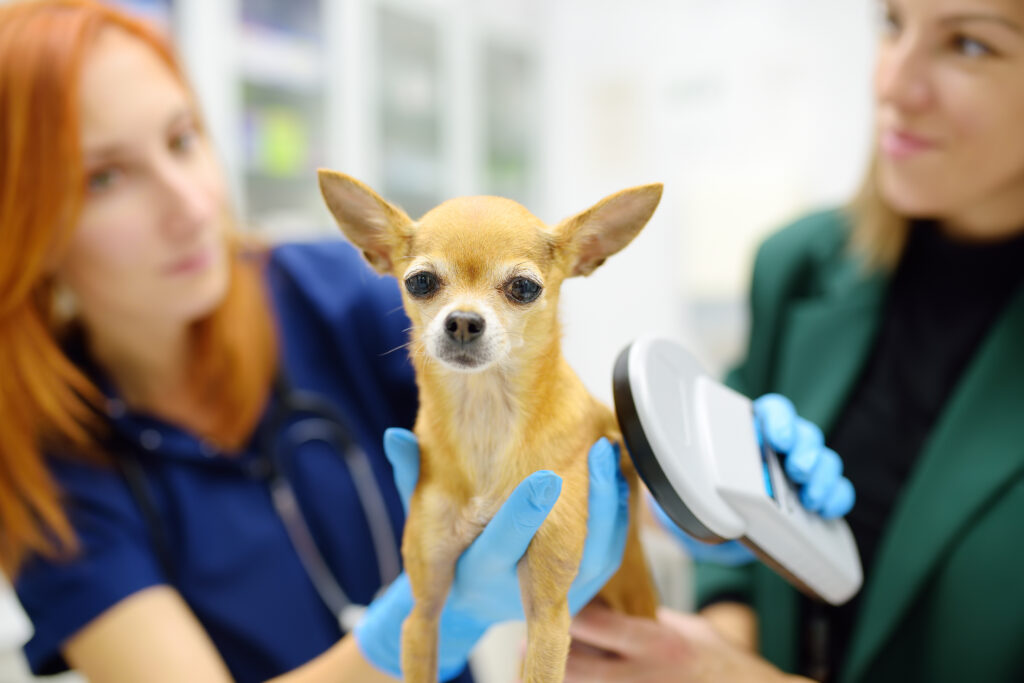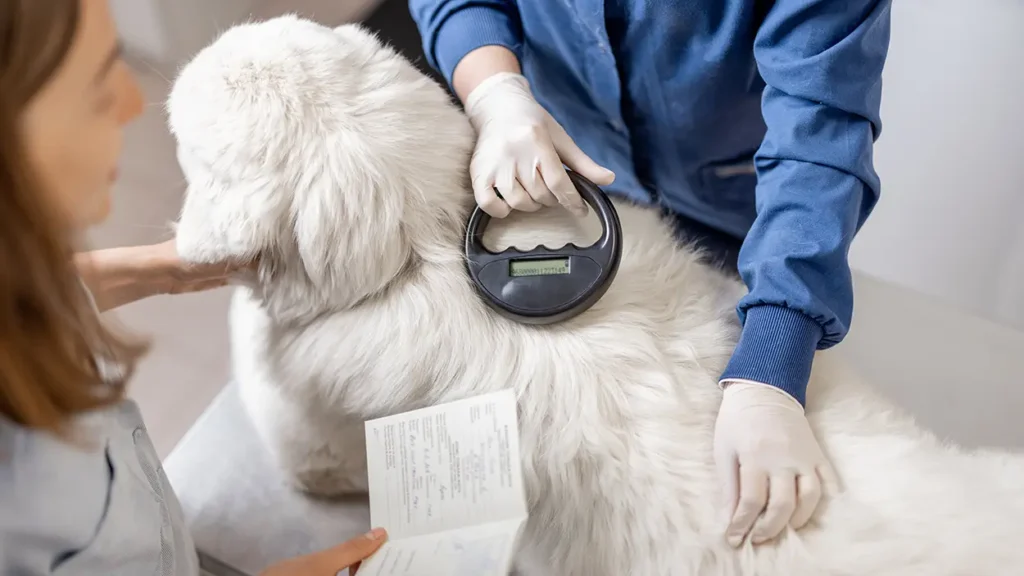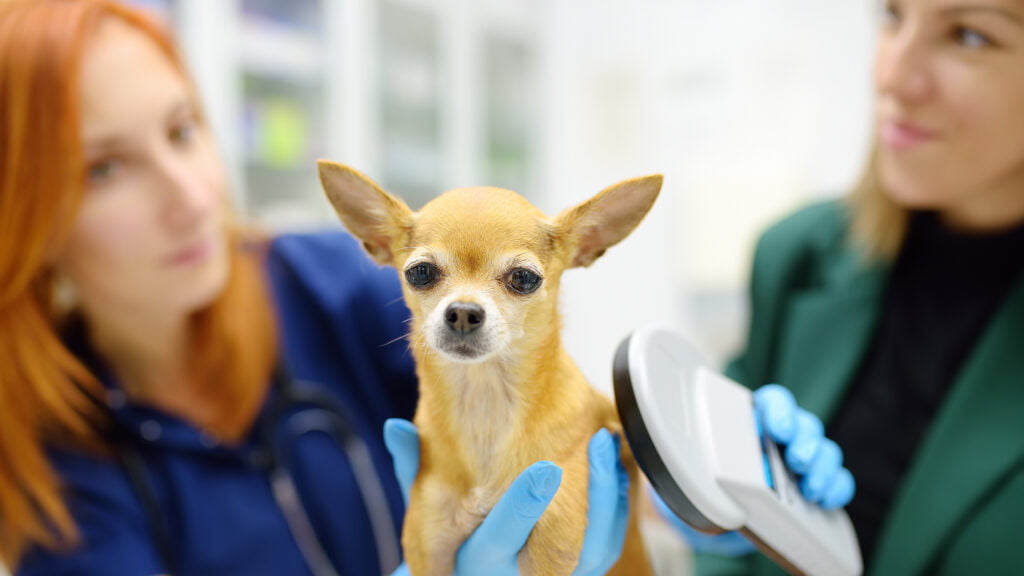National Check the Chip Day Reminds Pet Owners: A Simple Update Could Save Your Pet’s Life

August 15 marks annual campaign to boost pet microchip registration rates as shelters face overcrowding crisis
As millions of Americans prepare for their summer vacations, veterinarians and animal welfare advocates are issuing an urgent reminder: check your pet’s microchip registration before you travel. National Check the Chip Day on August 15 highlights a sobering reality—while microchips can triple the chances of reuniting lost pets with their families, only about 60% are properly registered.
The stakes couldn’t be higher. An estimated 10 million dogs and cats go missing in the United States each year, with devastating consequences for both pets and families. Research published in the Journal of the American Veterinary Medical Association reveals a stark difference in outcomes: only 22% of lost dogs entering shelters return home, but that number jumps to over 52% when the animal is microchipped.
For cats, the statistics are even more dramatic. While just 2% of felines in shelters are typically reunited with owners, microchipping increases that rate to nearly 40%.
A Life-Saving Technology Hidden in Plain Sight
Despite these impressive statistics, misconceptions about microchipping persist. Many pet owners incorrectly believe the rice-grain-sized devices provide GPS tracking capabilities—they don’t. Instead, microchips contain a unique identification number that, when scanned by veterinarians or shelter workers, connects to a database with owner contact information.
“A microchip is definitive,” explains Jessica Nett, director of operations at the Leslie A. Malone Center in Denver. “We hear a lot of misconceptions about what a microchip is. It’s a misunderstood technology.”
The procedure itself is quick and requires no anesthesia—similar to a routine vaccination. But the real challenge comes after implantation: ensuring the chip is registered and the information stays current.
When Every Second Counts
Rachael Jones knows firsthand how crucial updated registration can be. When a devastating apartment fire forced her to throw her cat Quazi from a third-floor balcony to safety, the terrified feline bolted into the Colorado darkness.
For six agonizing months, Jones searched for her “sassy” companion. “I am so glad he was microchipped,” she recalls. “It gave me hope knowing if someone found him and took him in, they would find he had a chip and an owner who’s missing him.”
That hope became reality when a Good Samaritan found Quazi and brought him to the Dumb Friends League shelter. Staff immediately scanned the chip and used a universal lookup tool to trace the registration. Within 24 hours, Jones was reunited with her “miracle kitty.”
“Finding Quazi was one of the best days of my life,” Jones said. “I’ll never forget the pure joy I felt when I got to hold him in my arms again.”
A National Crisis Demands Action
The timing of Check the Chip Day coincides with what animal welfare experts describe as a shelter crisis. According to Shelter Animals Count, 56% of pets entering facilities in the first half of 2024 were strays—animals that could potentially return home if properly identified.
Recent research from Human Animal Support Services analyzed data from 17 U.S. shelters and found that while microchipped pets are three times more likely to be reunited with families, only 18% of animals entering shelters actually have chips.
“The main takeaway is that microchips are an effective way of getting pets home, but there’s still room for improvement,” said Amanda Foster, assistant director of implementation and analysis at the organization.
With more animals entering shelters than being adopted, quickly reuniting strays with their families becomes critical for freeing up space for pets that truly need homes.
Taking Action Beyond August 15
The American Veterinary Medical Association and American Animal Hospital Association, which established Check the Chip Day in 2013, stress that the initiative shouldn’t be limited to one day per year. They recommend pet owners verify their microchip information annually and immediately after any major life changes like moves or phone number updates.
For pet owners unsure about their animal’s chip status, veterinarians can quickly scan during routine visits. Those needing to update information can use the Universal Pet Microchip Lookup Tool at PetMicrochipLookup.org to find the appropriate registry.
“Any veterinarian can implant a pet microchip for you; the procedure is simple and does not require an anesthetic,” said Dr. Sandra Faeh, AVMA president. “When the chip is scanned, embedded codes are used to retrieve the contact information of the pet owners. If the pet is lost, a reunion will follow—if the contact information is current.”
As Check the Chip Day approaches, veterinary professionals are also encouraged to partner with local shelters, offer community microchipping events, and provide resources in multiple languages to reach diverse pet-owning populations.
The message is simple but urgent: in the few minutes it takes to verify or update microchip registration, pet owners could be taking the most important step toward ensuring their beloved companions make it home safely.
For more information about pet microchipping, visit AVMA.org/CheckTheChip or consult your local veterinarian.




Responses